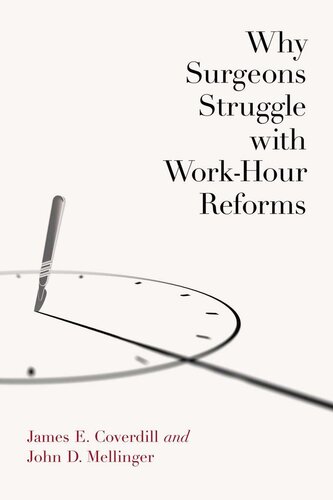ادای احترام به مردگان: جامعه شناسی خرید عضو در فرانسه ۲۰۱۰
The Generosity of the Dead: A Sociology of Organ Procurement in France 2010
دانلود کتاب ادای احترام به مردگان: جامعه شناسی خرید عضو در فرانسه ۲۰۱۰ (The Generosity of the Dead: A Sociology of Organ Procurement in France 2010) با لینک مستقیم و فرمت pdf (پی دی اف)
| نویسنده |
Graciela Nowenstein |
|---|
| تعداد صفحهها |
190 |
|---|---|
| نوع فایل |
|
| حجم |
2 Mb |
| سال انتشار |
2010 |
89,000 تومان
معرفی کتاب ادای احترام به مردگان: جامعه شناسی خرید عضو در فرانسه ۲۰۱۰
این جلد از تجربه فرانسه برای بررسی بحث بین المللی در مورد تهیه اعضای بدن استفاده می کند. مفسران تلاش کرده اند تفاوت های عظیم در نرخ های خرید در کشورهای مختلف را از نظر متغیرهای قانونی توضیح دهند و تنوع نظام های حقوقی را که رضایت را تنظیم می کنند، برجسته کنند. فرض کلی این بود که سیستم های “رضایت مفروض” (انصراف) نتایج بهتری نسبت به سیستم های “رضایت صریح” (opt-in) بدست می آورند. این مطالعه از مورد فرانسوی برای به چالش کشیدن این فرض رایج استفاده می کند. نویسنده استدلال می کند که نظام های فرانسوی رضایت فرضی با الگوهای رفتاری همزیستی دارند که در عمل از قانون استفاده نمی کنند. پیشنهاد می شود که عوامل فرهنگی، زمینه ای و رابطه ای تفاوت ها در نرخ خرید را به جای عوامل قانونی توضیح دهند.
این کتاب چهار حوزه اصلی تحقیقات جاری در مطالعات اجتماعی و حقوقی را بررسی می کند: (1) سیستم های رضایت احتمالی برای اهدای عضو ما سخاوت را در میان شهروندان ناشناس فرض می کنیم. نحوه رسیدگی به این امر در عمل، وضعیت و ماهیت همبستگی اجتماعی را آشکار می کند. (2) تغییر قانونی و دامنه پروژه های مهندسی اجتماعی از طریق قانون، و در نتیجه تغییر ماهیت رابطه بین شهروند و دولت. (3) قانونی بودن مداخله دولت در عزاداری و صلاحدید دولت در استفاده از اجساد. و (4) تغییرات اخیر برای قرار دادن متخصصان پزشکی به عنوان نمادهای قدرت و عوامل سیاست دولتی.
این عنوان منبع ارزشمندی برای محققان، دانشگاهیان، سیاست گذاران و دست اندرکارانی خواهد بود که به این موضوع علاقه دارند. موضوع پیچیده و موضوعی
این کمک مهمی به جامعه شناسی حقوق است، که تصویری قدرتمند از این تز کلی ارائه می دهد که اینکه آیا یک قانون همانطور که در نظر گرفته شده «کار می کند» در درجه اول به نحوه دریافت و تفسیر آن توسط کسانی که در «طبقه فروشگاه هستند» بستگی دارد. ” جایی که رخ می دهد رفتاری که باید تنظیم شود. هیچ خواننده ای که هنوز فکر می کند سیستم قانونی موجود و آمارهای کلی در مورد نرخ های خرید چیزهای زیادی را در مورد آنچه واقعاً در حال وقوع است به او می گوید بیرون نخواهد آمد. جان گریفیتس، دانشگاه گرونینگن، هلند
The book explores four areas that are key to current research in socio-legal studies: (1) Presumed consent systems to organ donation assume generosity between anonymous citizens. How this is dealt with in practice reveals much about the state and nature of social solidarity; (2) The changing legitimacy and scope of projects of social engineering via the law, and thereby the changing nature of the citizen-state relationship; (3) The legitimacy of state intervention in mourning situations and state discretion in the use of corpses; and (4) Recent modifications of the status of medical professionals as figures of authority and agents of state policy.
This title will be a valuable resource for researchers, academics, policy-makers and practitioners with an interest in this complex and topical subject.
This is an important contribution to the sociology of law, affording a powerful illustration of the general thesis that whether a law `works' as intended depends in the first place on how it is received and interpreted by those on the `shop floor' where the behaviour to be regulated takes place. No reader will come away still believing that the legal regime in force and general statistics on procurement rates tell one much about what is actually going on. John Griffiths, University of Groningen, The Netherlands















